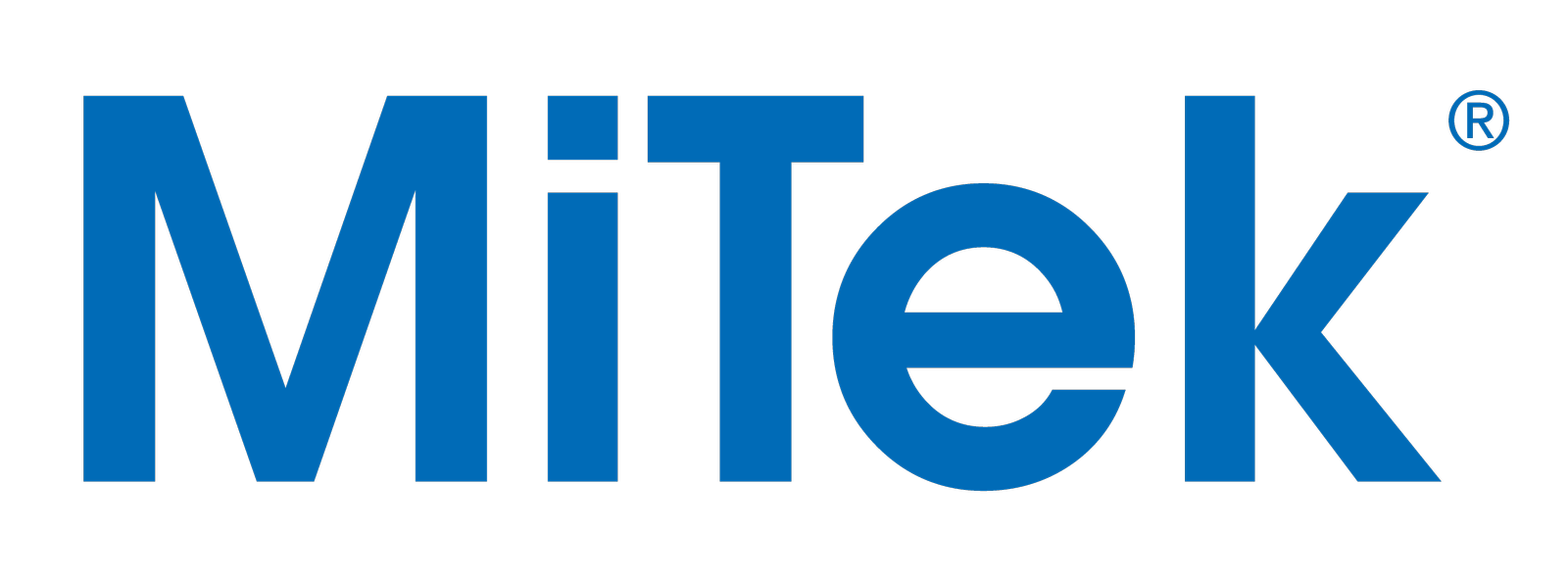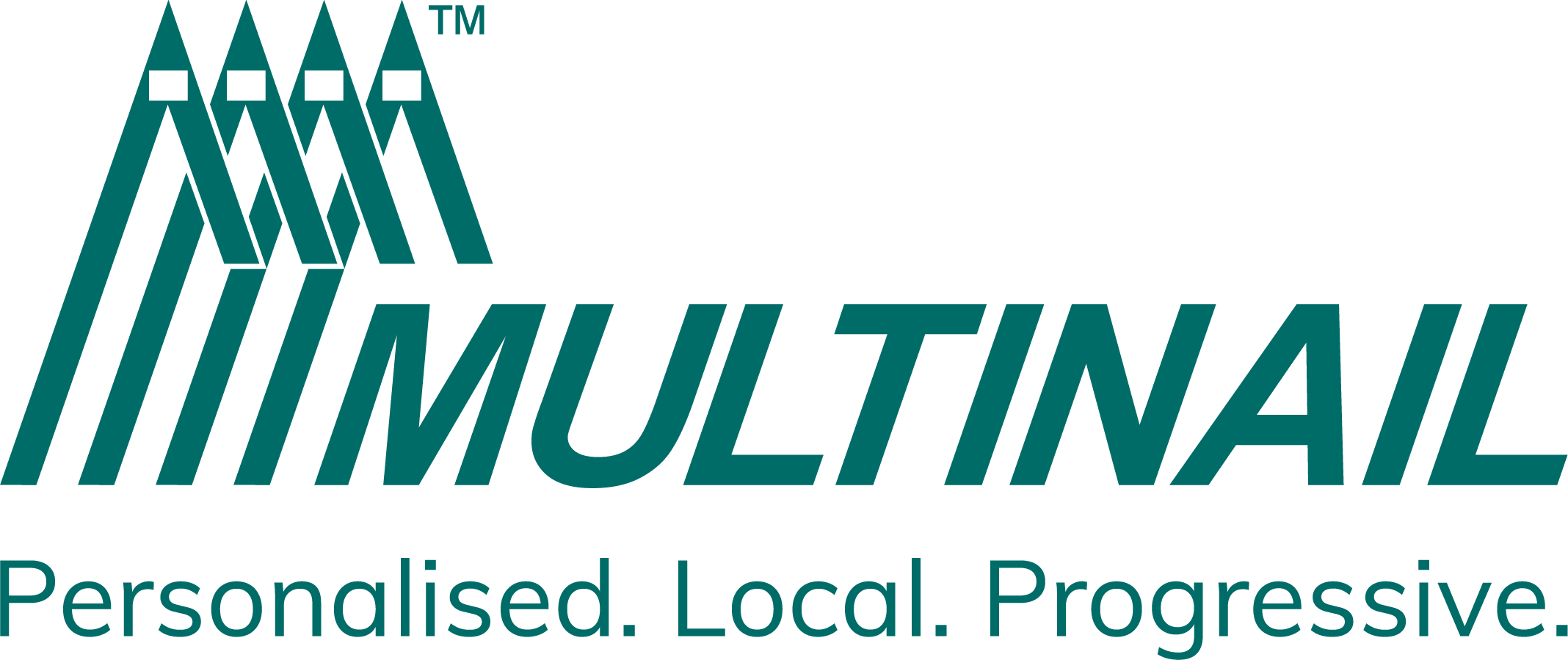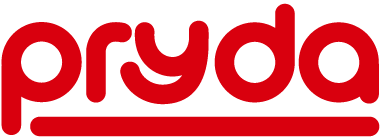This piece was written by FTMA’s Kat Welsh.
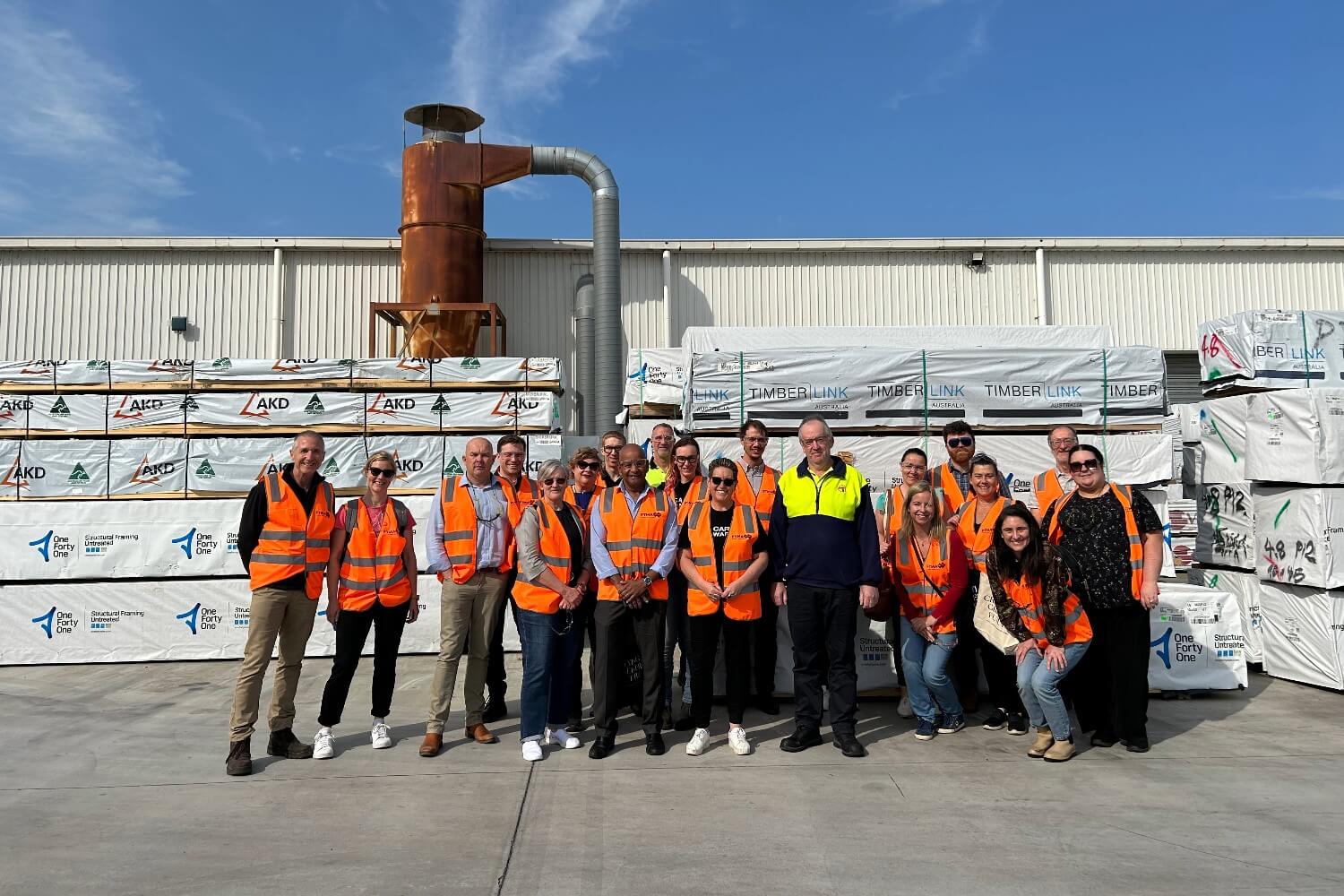
On Tuesday September 19th FTMA conducted a tour, visiting frame and truss fabricators in the outer eastern suburbs of Melbourne. A group of 20 people spanning across different areas of the forest and wood products sector came to learn about and experience a variety of plants. The group was made up of representatives from MiTek, Pryda, Multinail, FWPA, WoodSolutions, ForestWorks, Native Forest Work Support Program, Wood Products Victoria, University of the Sunshine Coast, NTHA, VAFPA, and of course FTMA.
The purpose of the tour for FTMA was to showcase that this sector of the industry is vital and hardworking, and provide primary insight into the technologies, operations, and how advanced these fabricators really are.
Before we go too much further, FTMA wants to express how grateful we are that these businesses opened up their doors, and were so welcoming to everyone. The care, information, and hospitality provided as we walked through the factories, and met employees, was wonderful and FTMA wants to thank everyone involved in making this happen.
Each business represented 1 of the 3 nail plate companies in Australia; MiTek, Multinail, and Pryda – setting the industrial standard in engineering, design software, and equipment, when it comes to frame and truss. Whilst each business had a different way of working – what their core focus was; how much technology was utilized; how they were expanding – it was an important visual and conscious way for those on the tour to see how the industry functions, how it has been impacted by covid, by timber shortages, by labour shortages, what issues the industry is facing, what it needs, and also what it is capable of.
The day kicked off with Bunnings Frame and Truss in Hallam – Pryda fabricators. The plant is 1 of 5 in Victoria and NSW, specialising in producing custom built frames and trusses. To say the inner workings of the factory and employees in action was impressive, is an understatement. What we witnessed was a perfectly streamlined operation, where every worker knew exactly what they were doing, what was coming next, and where their section was heading. Seeing frames built within minutes, having been engineered precisely by the saws and programmes, hit home about how well designed the finished product was, how efficiently it could be done, and how it by far outweighed people out on site battling with tape measures, environmental factors, and unpredictable issues. The safety aspect was abundantly apparent. Limiting hazards for workers and keeping them safe, whilst continuing to produce quality products is a key focus and argument for offsite fabrication. Operations Manager, Glenn Webb, spoke passionately about making worker safety paramount within what they were doing.
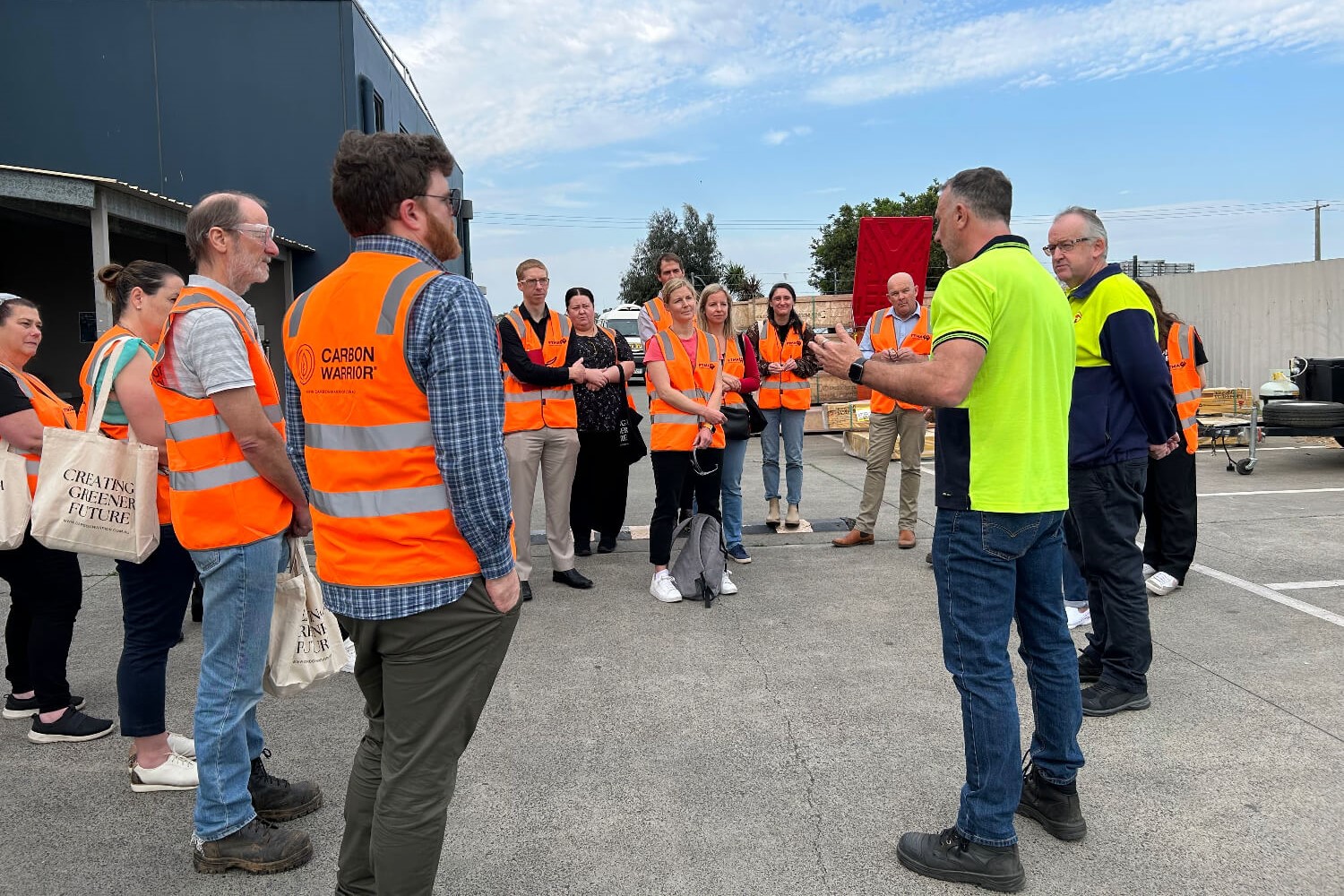
At stop 2, AAA Advanced Trusses, again we saw the dedication of advanced design – this time a MiTek fabricator. A family business, set up by Colin Clements, and with his son Andrew Clements as CEO, AAA has grown substantially since it opened in 1986. The business was astounding in its size and technology, and again, the mechanics between the machines and the workers all being a part of the process was inspiring. In each of the 4 sheds were clearly displayed the business’s goals when it comes to what they want for their workers, for the products, and for the industry.
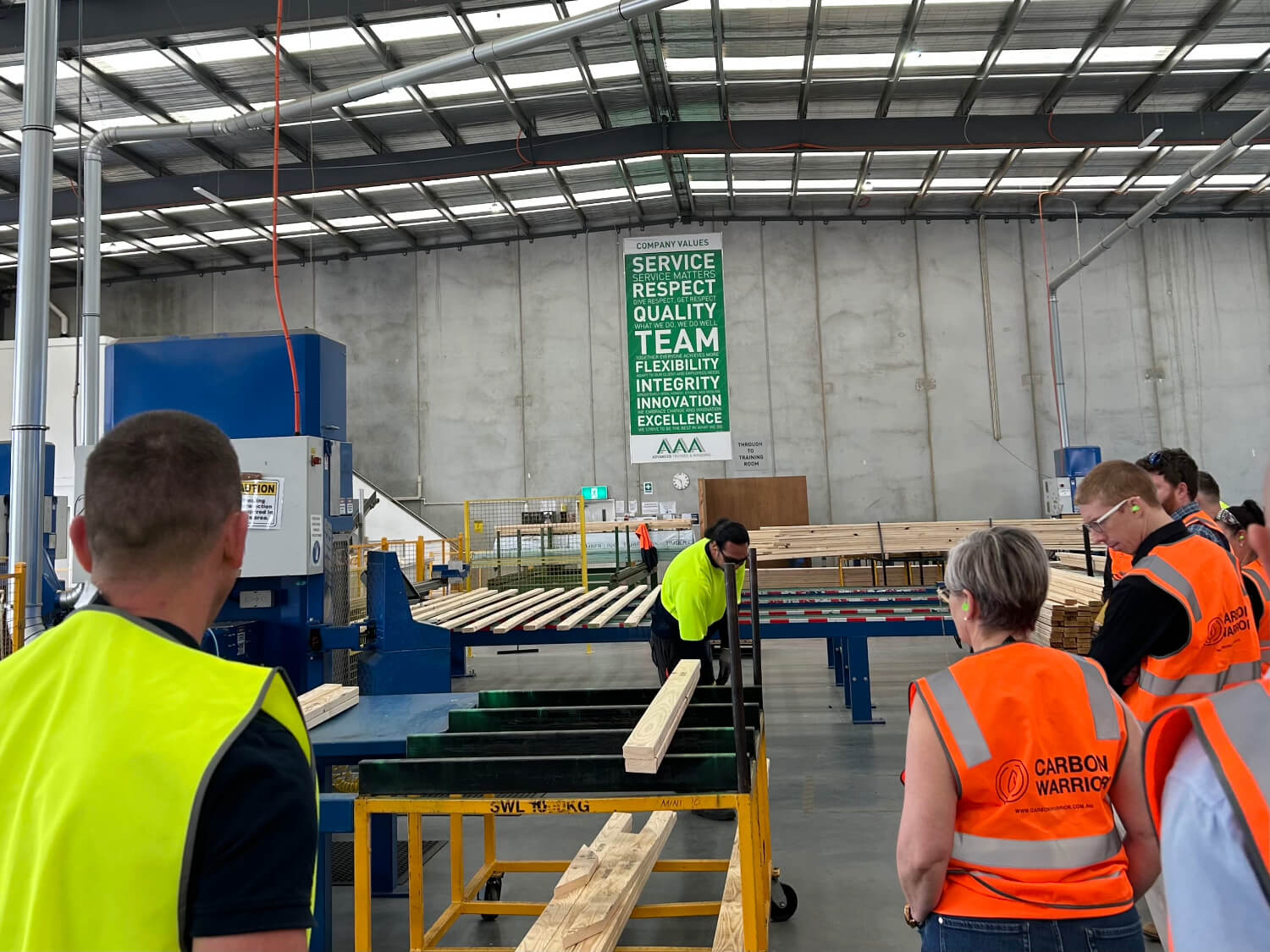

The staff that showed us around, spoke with obvious pride at what was being achieved by the business of over 200 employees, and how they were dedicated to supporting their workers from the second they walked in the door on their first day. Each worker goes through detailed training, and also in multiple areas, so over time, they develop skill and understanding of everything that is going on. The care for their people, as well creating advanced products, was everywhere we looked. Given that AAA has staff clocking up 20 and even 30 years of employment with the business, it’s not just about retaining skilled workers, but being an organisation that is genuinely kind, accepting, diverse, and collaborative. The work the management team put into creating an environment for the staff to have fun, connect, and promote self-care, shone through. AAA also regularly run tours through the plant, to spread the prefab message to builders, and sometimes education facilities – nothing backs up the claims of better products, at a quicker and safer rate, than seeing it happen in front of you.
Stop 3, at Peuker and Alexander, – MiTek fabricators – a family business, supplying builders for over 70 years, was another highlight of the trip, not just because of the morning tea! Peter Alexander, and son-in-law Luke Blackwell, showed us around a site, which when it came to the technology and machines, was jaw-hitting-the-floor remarkable. The time in which it took to process jobs and have them ready to be out for delivery boggled the mind. Again, the worker dedication and skill behind the machines was vital and highly valued. While the plant was more heavily machine driven, everyone was still an essential piece in the picture. The AI includes, Packfeeders that interact with the saw, provide the saw with the required timber, then deliver it to the different tables. Lasers set up the trusses based on where everything needs to be according to the designs, the foreman will put in stabilising staples, then a nailing bridge will come and staple it to completion. The finished frame also goes through an inspection process where AI makes sure it is up to standard. Following this the delivery system takes the frame externally where it will be sorted by AI into different job groupings, stacking all the required frames for the one job together, then ready to be delivered. Most on the tour, were mesmerised by the automated processing, the way in which the machines fed into each other and supplied the workers with the precise piece of wood, and then handled the finished frames.
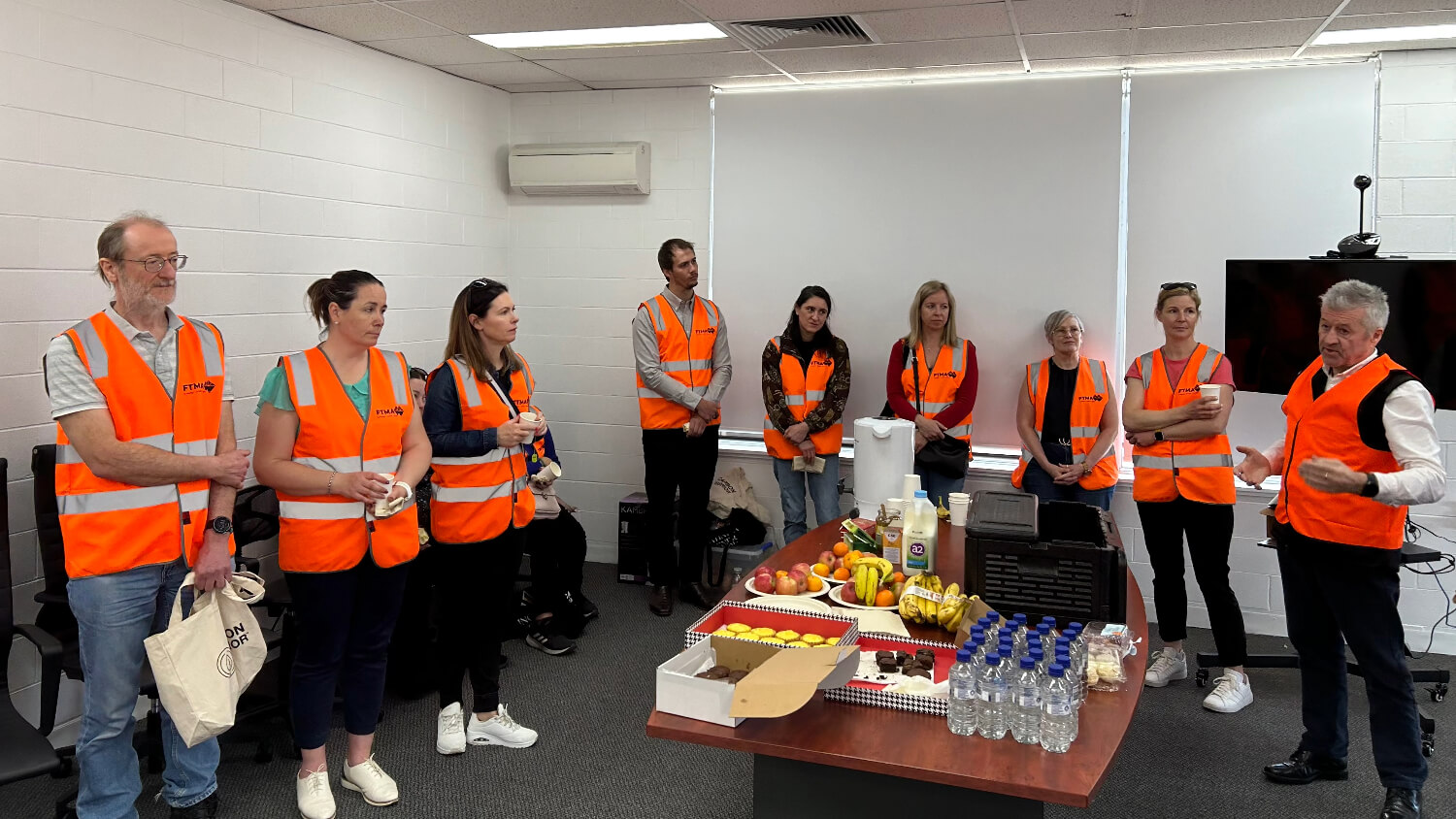
The 4th plant for the day was Complete Frames in Pakenham – Multinail fabricators. Out of all the businesses we visited, Complete Frames was the smallest in size. They had an impressive layout of production and workers skilfully producing frames. They specialise in whole build frames for builders including wall, flooring and roof. The business owners, Damien Whitnell and Joe Hackett, run an industrious and highly efficient team of employees, dedicated to what they are doing, and how they are promoting the offsite building advantages. The team pride themselves in delivering quality engineered products to their customers. Being the designated lunch stop for the day as well, it gave everyone the opportunity to get to know others and connect over the BBQ put on by Complete Frames. What also came up here, was the topic of waste, and talking through what Complete Frames have trialled in the past, including a local prison taking waste timber for a finger-jointing program, compressed fire bricks, and also mulching. Every plant deals with the problem of waste in different ways. Although, the waste from offsite fabricators is far superior to stick-built onsite framing. The waste topic is an important one, and is being looked into on a national scale – with hopefully better ways to manage this, so it isn’t ending up in landfill or with individual businesses left footing massive bills.

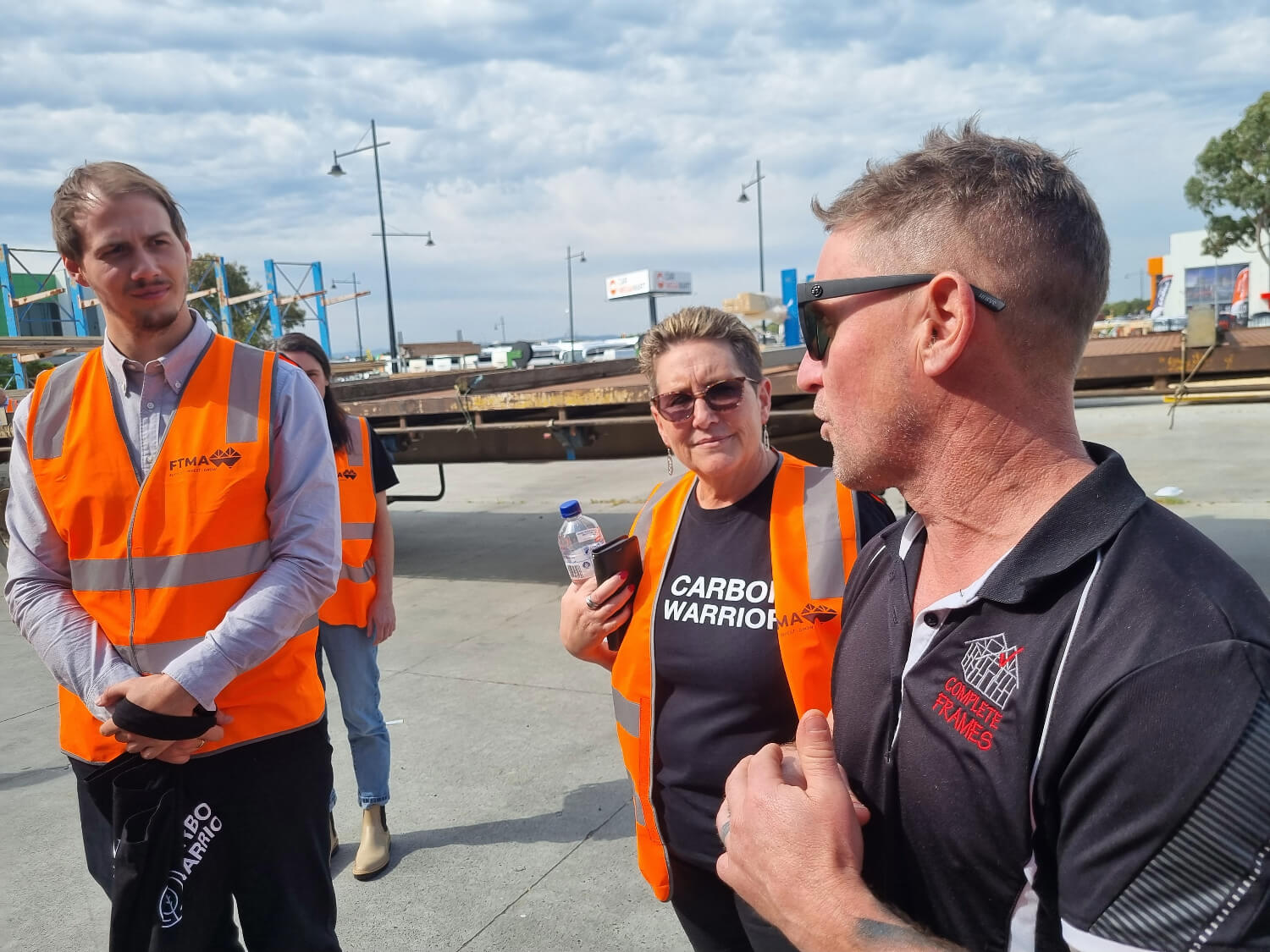
The 5th and final stop for the day was at Drouin West Timber and Truss – Pryda fabricators. DWTT have been operating since the 1980’s, and Rod Smith, Doug Ward, and Andrew Nunan, were kind enough to show us around, and answer any questions. DWTT specialise in creating the whole build, including FutureFit wall panels and floor cassettes, that include windows as part of the walling. As with each of the previous plants, what was being done here was a bit different, eye-opening, and inspiring. Walking around the plant, and seeing for ourselves yet another example of engineered wood, offsite benefits, and ingenuity at its best, this last stop was the icing on the cake for an incredible day. DWTT can provide a lockup dwelling, which can produce approx. 70% of the work for builders. On average it takes 2.5 days to create a 3-level apartment onsite. The possibilities for that kind of engineered wood technology seems like a no-brainer for the future of construction in Australia. The technology and design used is skilled, efficient, and state-of-the-art. Seeing the production, particularly of the panelised walls, knowing that this could be somebody’s completed home in just a few days, made it seem even more real that this is the future.
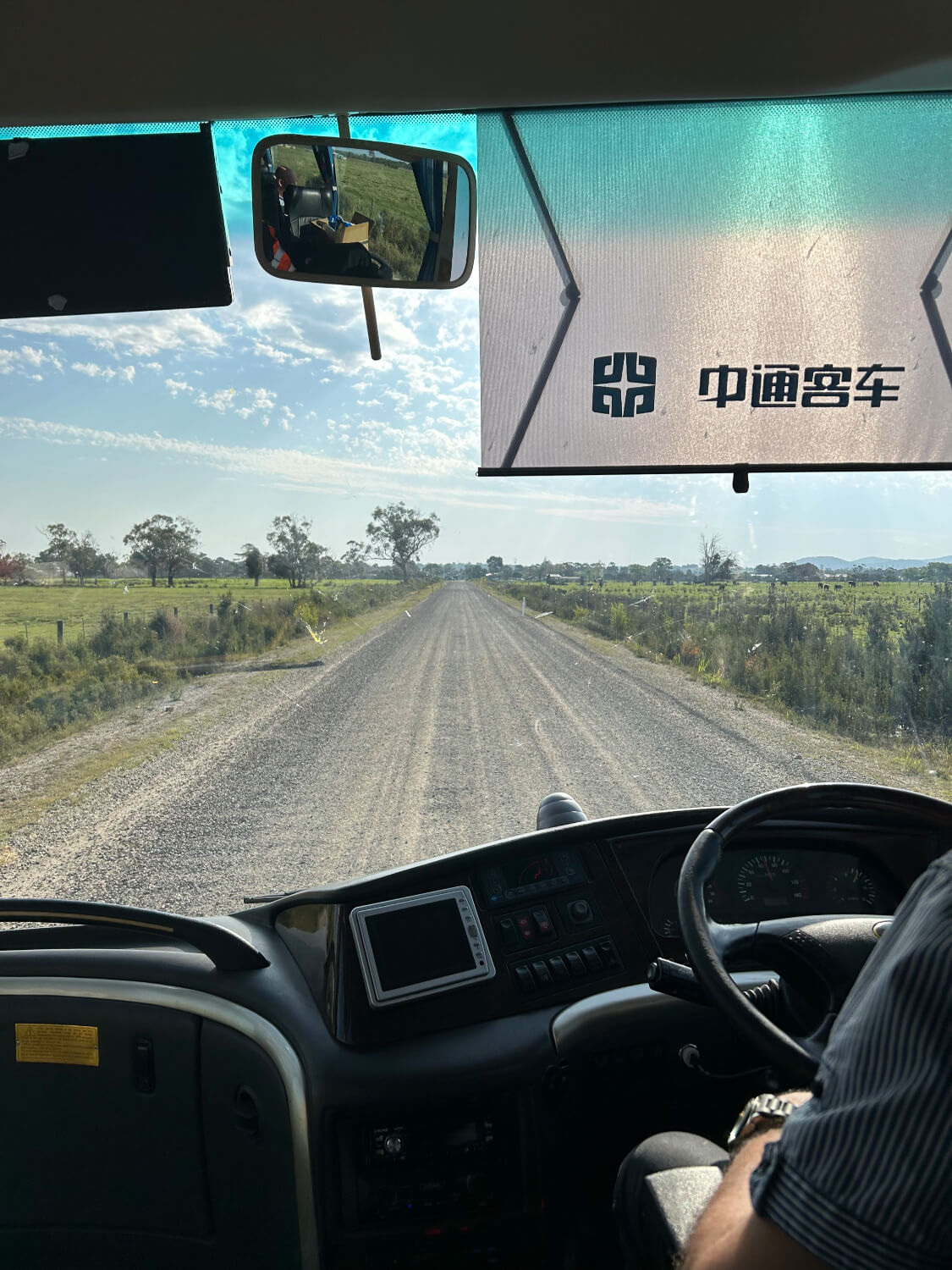
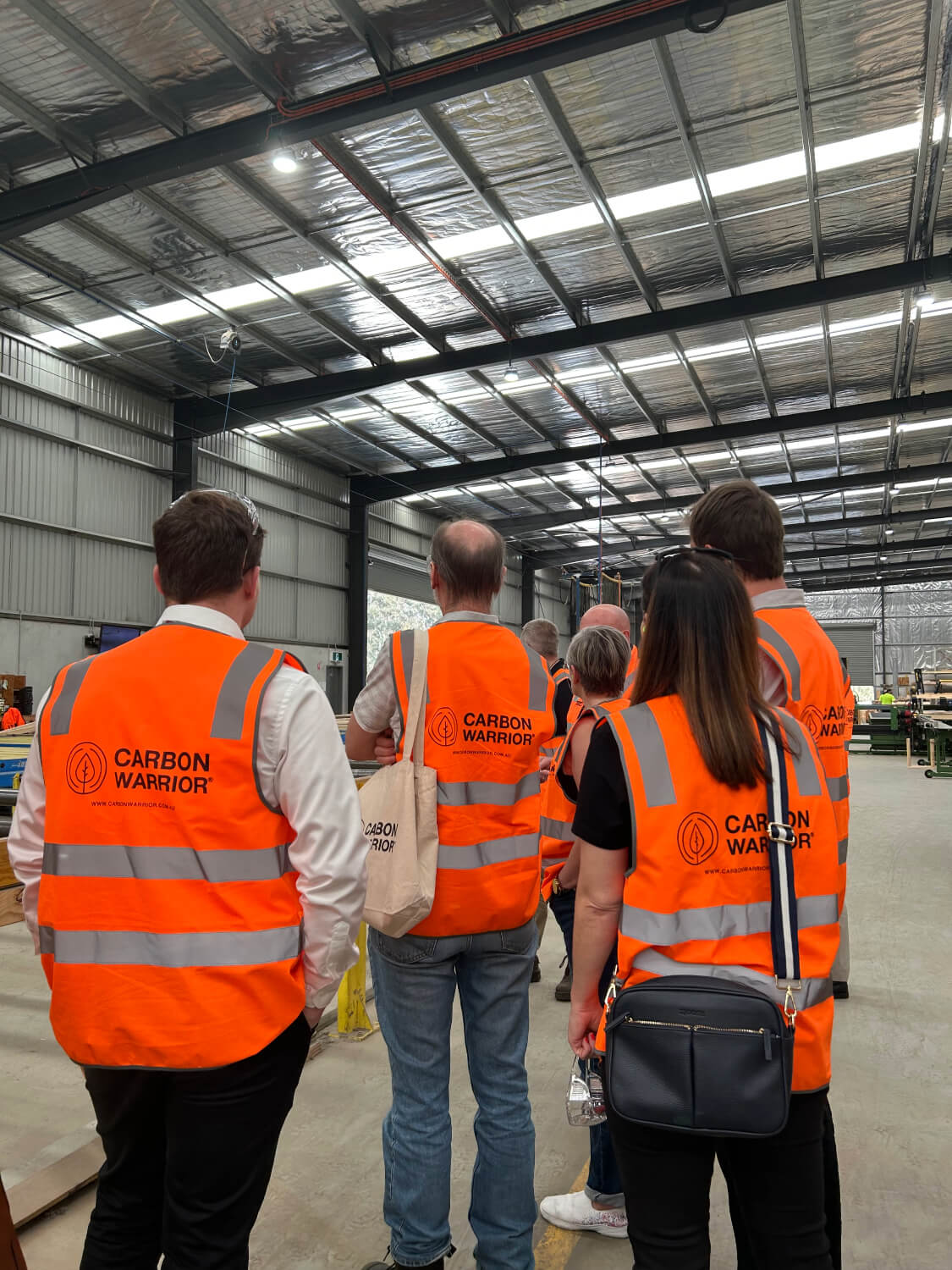
As with all the plants we saw, seeing it physically happen with our own eyes strengthened the message that offsite manufacturing can be done in a fraction of the time of stick-built, with less waste, and safer conditions. And… the obvious point, locking carbon away. The tour made it tangible.
The key messages of the trip were obvious by the end of the day. The people working in frame and truss are incredibly dedicated, innovative, and passionate. While they’re all battling common problems – skilled worker shortages, social re-marketing regarding timber and logging, lack of education on mainstream curriculum, ups and downs of demand and supply – these businesses are proving that they are part of the solution for the future, and the best way we have of pulling carbon back out of the atmosphere again.
For some on the tour, it was their first trip to a frame and truss plant. But, what everyone came away with was evidenced understandings of how incredible this sector is. The issues that all these businesses have faced just in the last few years is vast, yet they have all found ways to keep going, and keep developing.
One final thought that came out of the day – collaboration and connection. FTMA is steadfast about unifying members and the industry – we are not in this alone. Bringing businesses and people together, rather than being competitors, is crucial. The tour helped bring people together, make connections, and foster friendships. No matter which organisation you represent in the forest and wood sector, together, is always better. Together, we can share and learn, plan and extend, support and grow.
Thanks once again to everyone that made this day happen – particularly to all the fabricators, for allowing us to see around, the information you gave, and the warmth you showed.
Our Principal Partners
